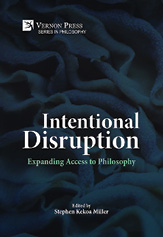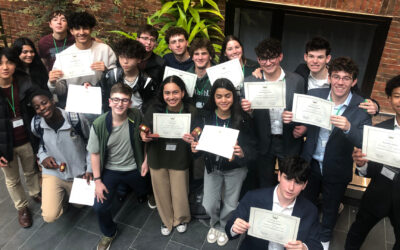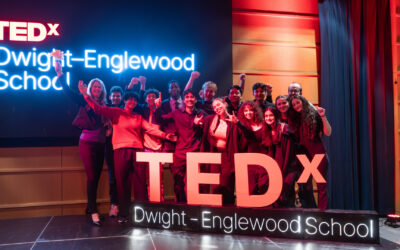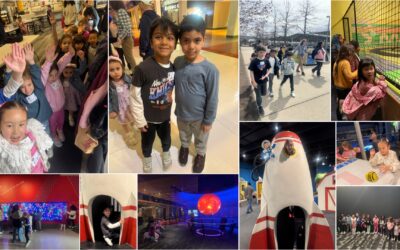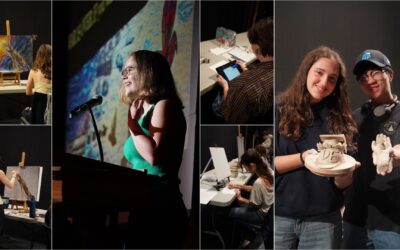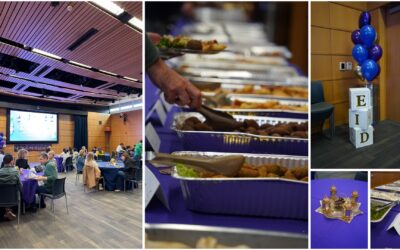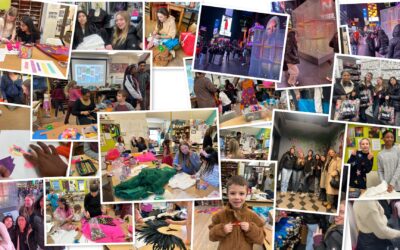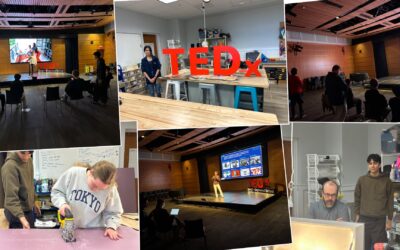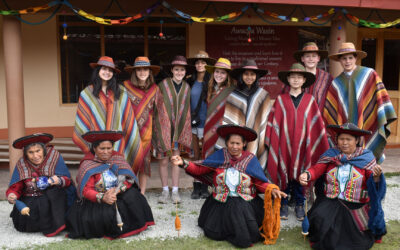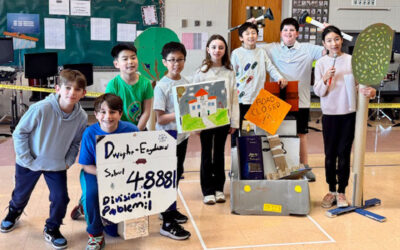That philosophy guides the Ethics Department Chair, Sr. Joseph Murphy, for his first-time tenth grade students. Sr. Murphy explains that, “they [students] think of opinions somehow like it’s property that they ‘own it’ somehow, but they really don’t own it fully until they can argue for it. Knowledge in a certain sense is a process, and you have to arrive at a conclusion through a process.”
Over this past Summer 2021, Ethics Department Chair Sr. Joe Murphy contributed a chapter within the anthology Intentional Disruption: Expanding Access to Philosophy (2021) published by Vernon Press. The anthology edited by Stephen Miller outlines how educators in philosophy have implemented the discipline at the pre-college level.
Students are always “in process” in class, formulating their ideas, at times, only in Spanish. Joe Murphy’s chapter “Once a Philosopher-In-Hiding: Teaching Philosophy in Spanish in the USA” details his journey from being the language department chair to trailblazing the now expansive ethics department curricula. He is one of few educators to integrate second language education with philosophical inquiry emphasizing that, “language is a way that we identify ourselves. When we talk and when we use language, it’s one of the ways that we make sense of the world.”
Philosophical education in high schools is often attributed as “critical thinking”. Sr. Murphy argues that what precedes the idea of “critical thinking” is first philosophical inquiry. He has seen what it provides in little moments: parents amazed with how their children have learned to discuss hard questions over the dinner table. Sr. Murphy hopes and implores other schools, administrators, and philosophers-in-hiding to take the leap. After all, they will become the philosophers and leaders of our future.
D-EMUN at DartMUN Highlights
Last weekend, the Dwight-Englewood Model United Nations (D-EMUN) team competed alongside hundreds of other delegates at Dartmouth College during its DartMUN conference. Delegates participated in a wide range of committees, including General Assemblies, Specialized...
TEDxDwight-Englewood School
The inaugural TEDxDwight-Englewood School event, held recently in Hajjar Auditorium, was a D-Efinitive success! Chief Innovation Officer Diana Gross gave opening remarks, along with student leaders and event co-facilitators Soham Bafana ’25 and Georgia Unger ’25,...
D-E 360° Discovery Day Trip to Liberty Science Center
Lower School (LS) students enjoyed exploring the Liberty Science Center, thanks to another Discovery Day from D-E 360° AfterCare & Enrichment (ACE)! Director of D-E 360° Dr. Sherronda Brown shared, “We enjoyed an amazing Discovery Day at Liberty Science Center!...
Arts & Design Assembly Showcases How the Magic Happens
The arts scene at D-E is blooming! Last week, the Upper School Assembly featured the Biannual Art & Design Showcase, which highlights the hard work of our AP Studio Art students and the many steps that go into creating the art. “Process is so important, sometimes more important than the final product,” said Marisol Diaz, Chair of the Art & Design Department. “The magic happens in the process!”
The assembly included slideshows and a series of videos capturing students working on their 2D and 3D art—drawings, paintings, printmaking, ceramics, digital and film photography, and more. Meanwhile, backstage, US Art & Design Teacher Paul Edwards facilitated a Live Art Battle for which student artists were asked to paint, draw, or sculpt what they think the soul of D-E looks like. The winner, by anonymous vote, was Lilah Carroll ’27 and second place went to Maleah Liao ’27.
Throughout the assembly, several of our young artists made brief presentations on the inspiration behind their lines of inquiry (LOI), which they use as the basis of their final portfolios. We congratulate all our talented artists who’ve made an incredible mark at D-E and continue to do so!
To read more about the showcase, please click the link in the bio.
Eid al-Fitr Faculty/Staff Appreciation Lunch Highlights
We’re so grateful to our Middle Eastern Parent Affinity Group, who generously hosted a D-Electable Eid al-Fitr Faculty/Staff Appreciation Lunch recently in Hajjar Auditorium! Members of the D-E community sampled a variety of Mezza dishes such as spinach and meat pies,...
TEDx Student Presenters Share Their Passions With the D-E Community
The inaugural TEDxDwight-Englewood School event, held on April 3, 2025, in Hajjar Auditorium, is in the books! Chief Innovation Officer Diana Gross gave opening remarks, along with student leaders and event co-facilitators Soham Bafana ’25 and Georgia Unger ’25, ahead of thoughtful presentations on a range of topics. “Our first TEDx event was a powerful reminder of the importance of giving students a platform to share their voices,” said Ms. Gross. “Their talks were inspiring, showcasing incredible talent and a deep commitment to our mission—applying skills, values, and courage to tackle real-world challenges and make a meaningful difference. They aren’t waiting to change the world—they’re already doing it!”
HOPE “Whimsical Fairytale” Fashion Show on Saturday, April 5
Final preparations for D-E’s “Whimsical Fairytale” HOPE Fashion Show & Fundraiser are well underway—so be sure to join us for the big event this Saturday, April 5! VIP guests will enjoy a pre-show Tea Party at 5 PM in the Imperatore Library ahead of general...
TEDxDwight-Englewood School Is Thursday, April 3!
Our TEDx student participants, from the production crew to our speakers, have been hard at work with help from very D-Edicated faculty/staff members, and are ready to go! We’re thrilled to present TEDxDwight-Englewood School in Hajjar Auditorium (2nd Floor, Campus...
D-E 360° 8th Grade Peru Trip 2025 Highlights
Another successful D-E 360° 8th Grade Spring Break Trip is in the books! Of the 8-day trip to Peru, Middle School Math Teacher and Chaperone Jon Egan, who has organized trips to the South American country since 2011, said this was “one of the best trips I’ve had with...
Odyssey of the Mind Tournament Highlights
D-E’s Odyssey of the Mind (OotM) teams recently competed at the Skylands Regional Tournament at Hillsborough Middle School, accompanied by Coach Colleen Larionoff, Innovation Coordinator, and D-E 360° Director Sherronda Brown. Our Upper School (US) team placed first...

